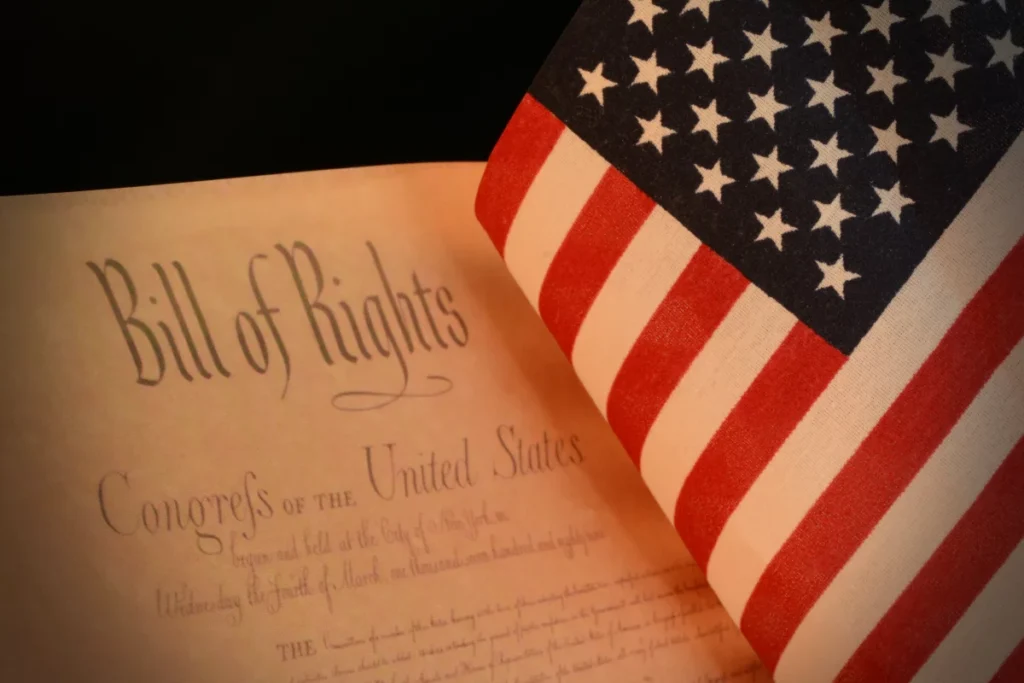Are America, Americans, and minors better off now than before Section 230 of the 1996 Communications Decency Act? In today’s trying times, it’s a fair and necessary question to ask.
In 1996, Section 230 made it U.S. policy that the Internet and its services be “unfettered by Federal and State regulation” and made it law that Internet services (like Big-Tech and social media today), have immunity from civil liability for how they intermediate others’ interactions online.
Reason and evidence will reveal whether Section 230 has made us better or worse off.
The Case For Better Off Now.
U.S. Internet policy/law succeeded at accelerating Internet adoption and buildout of broadband infrastructure. Now in America, everyone everywhere can conduct everything over the Internet. It makes most things and tasks in life, work, and play, more convenient, efficient, and lower cost.
We now can communicate and stay connected with more people in more ways, more efficiently and economically than ever before. Everyone now has immediate and exceptional access to much of the world’s information, improving research, learning, education, science, and innovation. We also can enjoy the greatest variety of entertainment ever.
Ecommerce, transactions, payments, donations, online services, delivery, hiring, job searching, travel, remote learning/work, and more, now are more convenient, efficient, and lower cost. The Internet also has yielded many transformative innovations.
The Case Against Better Off Now.
Today, the Internet and its unaccountability policy is an ongoing 1996 utopian, experiment of minimal accountability online. This ‘Wild West’ Internet policy approves anarchism in abandoning the Constitution, rights, rule-of-law, and duty-of-care online. It approves amoralism also in not legislating, administrating, or adjudicating right vs. wrong, or legal vs. illegal, online.
For twenty-seven years, five administrations, fourteen congresses, and seventeen Supreme Court Justices, together, have neglected to: protect Americans and minors from online crimes and harms; provide normal policy oversight; or update outdated Internet policy, as other major nations have.
America, Americans, and minors are much less secure, safe, and protected than before.
In 1996, U.S. Internet policy surrendered America’s sovereignty and government authority online. Since then, this reckless policy of absolutist free flow of data into the U.S. has continuously and unwittingly aided and abetted the attacks of our top adversaries China, Russia, and cybercriminals, with impunity. As a result, at will, China has stolen countless U.S. national security and trade secrets. And Russia has disrupted America at will via rampant ransomware, cybercrime, and election interference.
Per the CDC, seventy thousand Americans have been killed annually by out-of-control fentanyl poisoning coming from rampant illegal foreign pharmacies online, via an unfettered fentanyl supply chain flowing from China through Mexican cartels who then sell through U.S. social media.
By now most Americans have been victims of cyberattacks, cyberbullying, or cybercrime, because only .3% of cybercrimes are prosecuted. Warren Buffet calls cybercrime mankind’s #1 problem and cyberattacks a bigger threat than nuclear weapons. Americans most worry about cybercrimes.
Online, no one and nothing in America is safe or secure because there are minimal market forces or government requirements to be safe and secure. That’s why the NSA, CIA, DOD, DOJ, DHS, OPM, White House, Google, Facebook, Amazon, Apple, Microsoft, et al have all been hacked; and hackers can hack planes in flight, vehicles on the road, and ships at sea. U.S. unilateral surrender of its sovereign authority online has made America its own worst enemy for 27 years.
America’s economy, commerce, and markets are more unhealthy, unfair, dishonest, unstable, and anti-competitive than before.
At first, Congress expected Internet unaccountability policy to spur growth of Internet adoption and broadband infrastructure, which it did. However, it quickly descended to slower US. economic growth and less U.S. prosperity via parasitic accountability arbitrage business models. Comparing the pre-Internet period of 1960-2000 to the 2000-2020 Internet period, U.S. GDP’s average annual growth has fallen by ~half. An online/offline accountability double standard is an unfair playing field that has manifested many monopolizations of what otherwise would be competitive markets.
Internet unaccountable parasitic business models have also yielded extremely disproportionate commercial prosperity. From 2012-2021, the revenue growth of Amazon, Google, and Facebook, outpaced the other 497 companies in the Fortune 500, by 2,160%. The accountability arbitrage of the parasitic three enabled a massive revenue transfer from their parasite hosts. The parasitic three companies outgrew USGDP by 1,200%, which largely came at the expense of the other Fortune 497 companies that lagged the U.S. economy by -42%, per BEA and Fortune 500 data.
Internet unaccountability policy tolerates and encourages dishonesty and corruption online and serially has favored, fostered, and fomented a ~$10 trillion, systemic fraud factory, crime wave, and accountability-arbitrage racket: Enron fraud, WorldCom fraud, Dotcom crash, fiber fraud, Napster piracy, Grokster piracy, financial crisis fraud, cryptocurrency fraud, unicorn fraud, blockchain fraud, Non-Fungible Token fraud Robinhood fraud, Decentralized Finance fraud, Cryptocurrency crash, FTX fraud contagion, FTX crypto-crash, AI voice scams, etc. Internet policymakers can no longer ignore that unaccountable commerce/finance cause out-of-control, crime, fraud, and theft.
America’s society is much less healthy and more dysfunctional and dystopian than before.
Americans’ trust in honesty, truth, and elections has declined in this ‘Internet Upset Era.’ Americans’ average confidence in major U.S. institutions has fallen 33% from 2000-2021, per Gallup. Social media polarizes people, making Americans more politically polarized than ever. From 2000-2020, U.S. political partisanship has grown 160% per Pew Research. And the U.S. Constitution’s objectives are not flourishing as they did before.
America’s legal double standard of accountability offline, but none online, has proved to be a democracy destroyer and an extreme machine that incites polarization, division, hate, rage, and violence. Profit over people algorithms promote ‘anger’ five times more than ‘likes.’ These anger algorithms aided and abetted the incitement of America’s unpeaceful 2021 transfer of power. Social media fame also has incited a 300% increase in U.S. mass shootings from thirty-three 1982-2002 to a hundred 2002-2022 per Statista. Mob morality now rules online.
Adult church membership has plummeted by a third. Confidence in organized religion has plummeted by a quarter. Americans are addicted to Internet technology, and becoming more depressed, lonely, and manipulated. The moral health of the family, marriage, parenting, and children is no longer flourishing. Now there is much less cultural concern for what is age-inappropriate online — confounding parents. Social media is addictive and causing teen depression, self-harm and suicides, especially for teenage girls per CDC data.
Americans/minors live dehumanized with fewer rights, freedoms, and morals than before.
U.S. Internet unaccountability policy dehumanizes Americans. It protects technology from harms, by prohibiting protection of people from technology harms. It grants technology impunity — freedom to harm, control, and rule over people with no rights, recourse, or access to justice.
Online people are not humans, citizens, or customers, they are dehumanized addicted ‘users.’ They are inanimate ‘data’ and ‘products,’ commercial chattel bought and sold with impunity by data brokers, without meaningful human consent, rights, protections, privacy, or security. They also are indentured Americans online, abandoned by their government as disenfranchised commercial captives of one-sided legal terms and indentures.
They are no longer citizens with rights, privacy, or control of their identity, dignity, reputation, and security online. Minors are defenseless prey fed to online predators, and minimally protected as lab rats to surveil, test, addict, and depress, and lambs to abuse and traffic with impunity.
The most corrupting, and endangering effect of U.S. Internet unaccountability policy may be how it holistically overturns how we all should interact with one another. Offline 92% of us embrace and follow the Golden Rule of ‘Treat others as you want to be treated’ that every major religion and ethical tradition believes in some form. Internet unaccountability policy is like a ‘Rotten Rule’ of ‘do whatever you want to others’ online, i.e., the unfettered freedom/impunity to harm others.
Conclusions:
1. Section 230 is an unmitigated National Nightmare and Digital Disaster, requiring repeal.
Reason, and the evidence sample above, reveal Americans, minors, and America are much worse off than before Section 230 became law and official U.S. Internet policy in 1996.
That’s because: America, Americans, and minors are much less secure, safe, and protected; our economy, commerce, and markets are more unhealthy, unfair, dishonest, unstable, and anti-competitive; our society is much less healthy and more dysfunctional and dystopian; and individually we live more dehumanized with fewer rights, freedoms, and morals.
This rotten reality requires repeal to mitigate the problems and harms Section 230 has caused.
2. Section 230’s extreme anti-government policy is extremely bad government.
In 1996, Congress overwhelmingly made it U.S. policy that a new universal technology, and all its applications and companies should forever be “unfettered by Federal and State regulation,” i.e., above the law and not subject to the Constitution, governing authorities, rule-of-law, a duty of care, and other normal societal responsibilities/accountabilities.
This has the government endorsing and modeling extreme governmental assumptions.
It effectively asserts there is no good in government and never will be, in de facto assuming people have no sin nature, and that there are no enemies, criminals, attackers, terrorists, threats, or risks that warrant government protections, defenses, deterrents, and rights.
It teaches the public to see the Government as the #1 problem facing America, as they do today, per a 2023 Gallup poll.
It essentially teaches the American public to distrust our Federal, State, and local governments. No surprise U.S. public trust in Government has been consistently lower in the Internet Era than any other extended period in the last sixty years per Pew Research.
It also puts all elected/appointed government officials and employees in the untenable position of ignoring their sworn oath of office …“to support and defend the Constitution of the United States against all enemies foreign and domestic…”
Repealing Section 230 is the best way to restore good U.S. Internet policy and good government.
3. Holistic technology/policy causes holistic problems, requiring a holistic solution — repeal.
A holistic all-purpose technology ungoverned by a holistic Internet unaccountability policy, naturally causes holistic Internet harms like those catalogued above, that in turn naturally require a symmetrical holistic solution to the problems/harms Section 230 has been causing broadly for 27 years. The only symmetrical holistic solution is repeal of Section 230.
Only repeal can restore what Congress unwittingly took away in 1996 Internet policy – sovereignty, constitutional authority, rule-of-law, duty of care, and access to justice over the U.S. Internet. Practically going forward that means: Same rules and rights offline/online. Illegal offline is illegal online. Equal justice under law.
Only repeal enables Americans to go from not having, to having, rights, recourse, and access to justice online. U.S. policy would flip from protecting technology from people, to protecting people from technology, i.e., people primacy policy. Big tech and Internet technology would go from not being subject, to being subject, to rule-of-law and a duty-of-care like everyone else. Repeal keeps the Internet good (legal conduct) and fixes the Internet bad (illegal conduct.)


